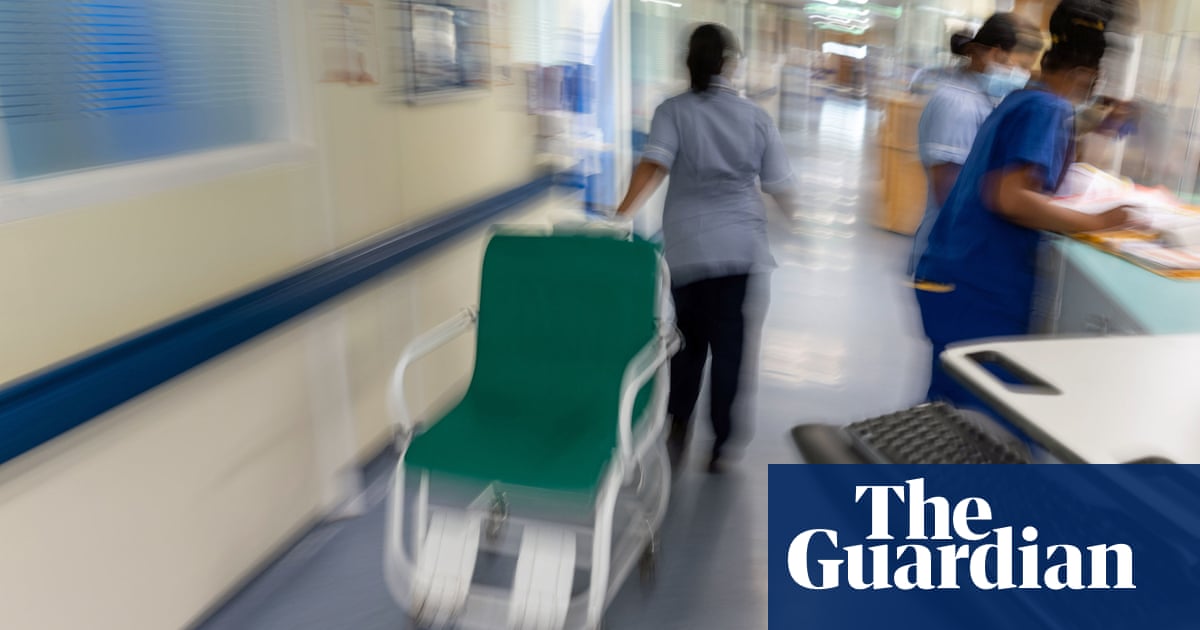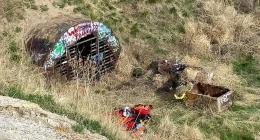
Britons die sooner from cancer and heart disease than people in many other rich countries, partly because of the NHS’s lack of beds, staff and scanners, a study has found.
The UK “underperforms significantly” on tackling its biggest killer diseases, in part because the NHS has been weakened by years of underinvestment, according to the report from the King’s Fund health thinktank. It “performs poorly” as judged by the number of avoidable deaths resulting from disease and injury and also by fatalities that could have been prevented had patients received better or quicker treatment.
The comparative study of 19 well-off nations concluded that Britain achieves only “below average” health outcomes because it spends a “below average” amount for every person on healthcare.
The sobering findings come 10 days before celebrations across the four home nations to mark the 75th anniversary of the NHS’s creation on 5 July 1948 by the postwar Labour government.
The King’s Fund pinpoints the NHS’s lack of doctors and nurses as one of the main reasons the service is struggling as judged by many of the criteria used in the thinktank’s analysis. On Thursday, the government will finally publish its long-awaited workforce plan to tackle staff shortages, which Rishi Sunak said on Sunday would be “one of the most significant announcements in the history of the NHS”.
The 118-page report compares the resources available to the NHS across the UK, and its performance, with those of the health systems in countries including France, Germany, Sweden, Japan, Singapore and the US. Among its main conclusions are that in the UK:
-
Survival rates for many of the most commonly occurring cancers, including breast, colon, cervix, rectum, lung and stomach, are “below average”
-
There are fewer CT and MRI scanners than in any of the other countries studied, and the number of hospital beds is the second smallest, owing to historical underinvestment in capital spending.
“The NHS … trails behind its international cousins on some key markers of a good healthcare system. We are not by any means where we should be,” said Siva Anandaciva, the author of the report and the King’s Fund’s chief analyst.
Anandaciva dismissed assertions by ministers in recent years that Covid-19 was to blame for much of the NHS’s increasing fragility and inability to provide urgent care promptly. The impact of the pandemic merely “compounded the consequences of more than a decade of squeezed investment in staff, equipment and wider services that keep us well”, he added.
after newsletter promotion
On Sunday, Sunak repeated to the BBC’s Laura Kuenssberg that the delays in care provision, which are the worst in the history of the NHS, and England’s waiting list of 7.3 million, were “because we’ve had a pandemic”.
The report, which draws on data collected by bodies such as the Organisation for Economic Co-operation and Development and the Office for National Statistics, also found that “people in the UK are profoundly dissatisfied with the current state of health services”. Despite the NHS’s difficulties, though, support for its founding principles – as a taxpayer-funded system that is available to all and free at the point of use – remains strong, with little appetite for radical reform.
The report also highlights the fact that in Britain, unlike in some other countries, people do not have to pay to access healthcare, though long waiting times are forcing growing numbers to do so. It also praises the NHS for its efficiency, low use of second-line antibiotics and management of diabetes.
Dr Sonya Babu-Narayan, the British Heart Foundation’s associate medical director, said that Britain’s poor record on cardiovascular health was a result of “a deadly combination of the Covid-19 pandemic, extreme and ongoing pressure on what was an already stretched health service, not enough NHS staff and space, deep-rooted health inequalities, and poor population health”
Michelle Mitchell, Cancer Research UK’s chief executive, urged ministers to make smoking obsolete, increasing the number of cancer screenings and plugging gaps in the cancer workforce to improve diagnosis and survival.
The Department of Health and Social Care did not respond directly to the King’s Fund’s findings. Instead, a spokesperson said only that: “This report recognises the NHS is one of the most efficiently run healthcare systems and we are investing up to £14.1bn to improve services and cut waiting lists, one of the government’s top five priorities.
“There are record numbers of staff working in the NHS with over 53,600 more people compared to a year ago, including over 5,400 more doctors and over 12,900 more nurses.”
Read More: World News | Entertainment News | Celeb News
Guardian







